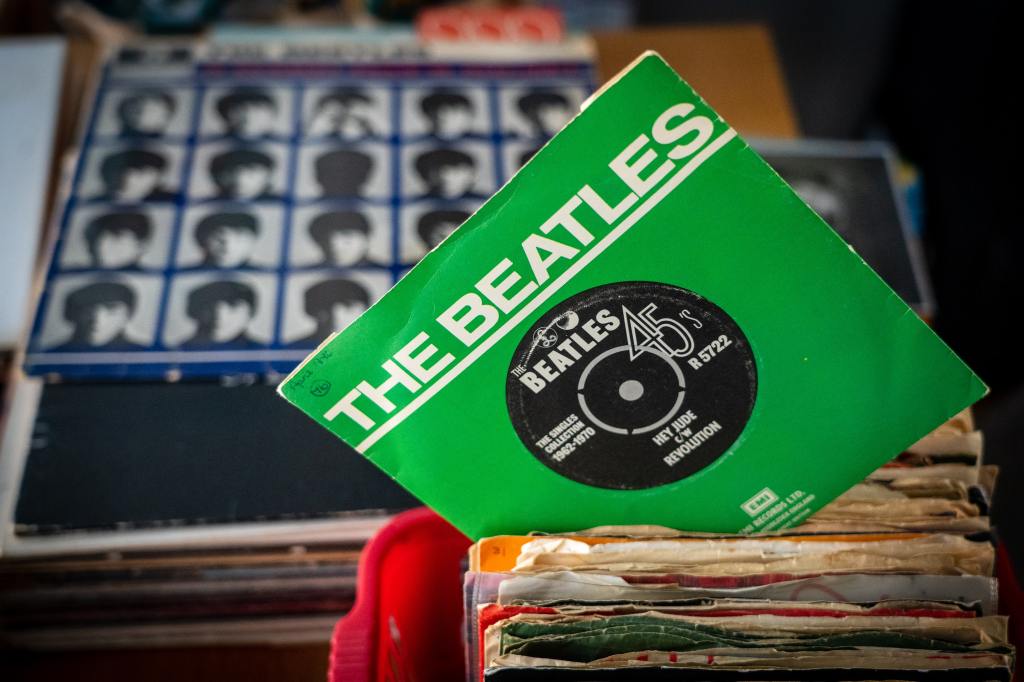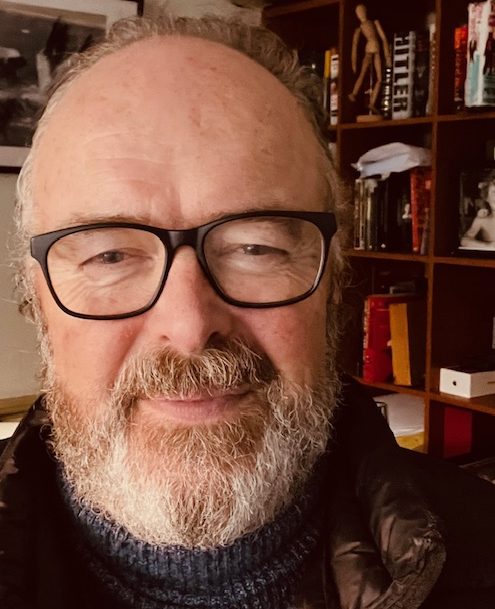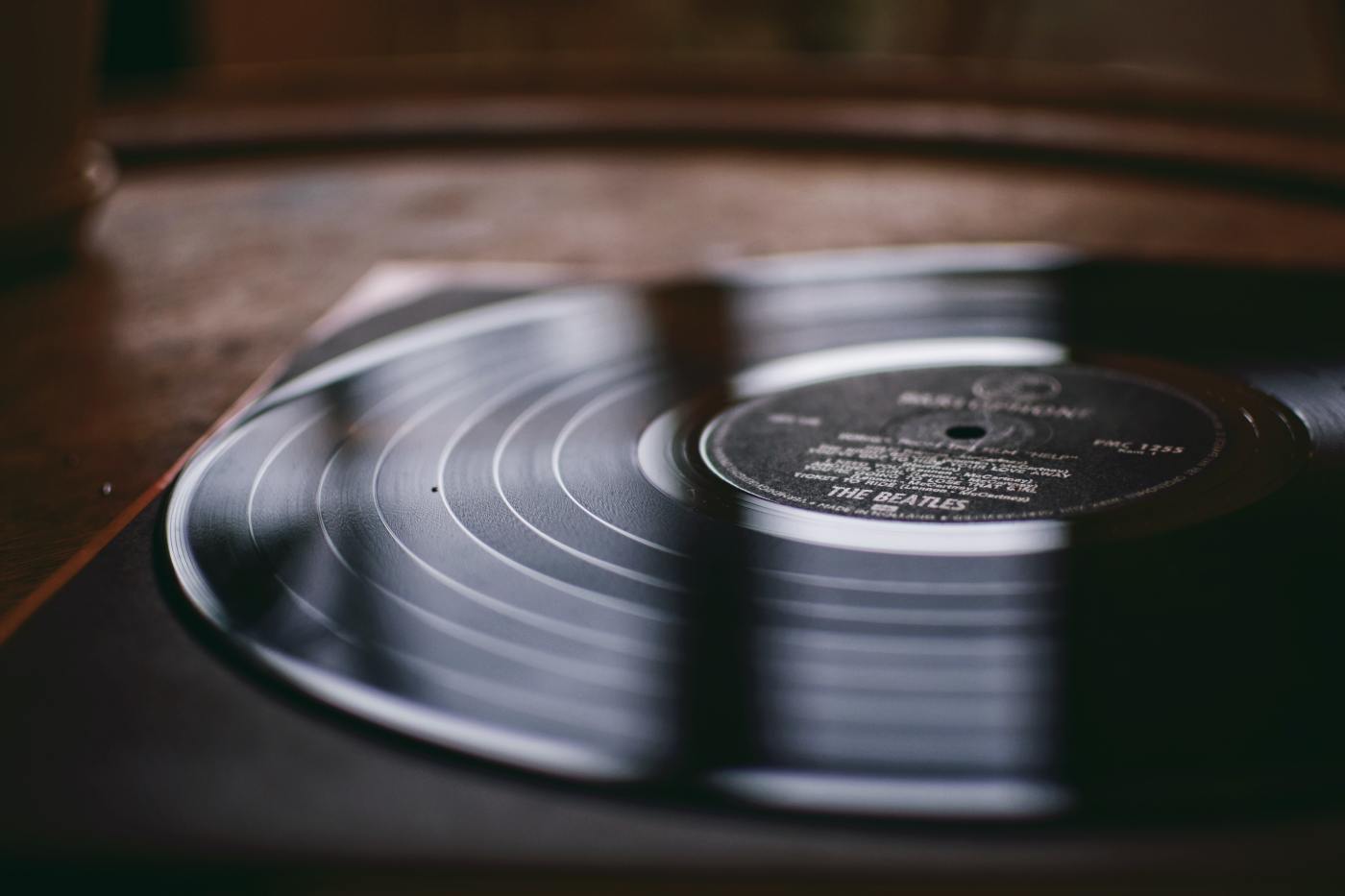
I was five when the Beatles entered my life. Early 1963. She Loves You. Here there and everywhere the yeah yeah yeah was sounding. Yet to this day I am not sure how. There was no Radio One, let alone the multiple commercial stations that now fill the air. We had one old radio in the kitchen. The Light Programme. Listen with Mother at 1.45. But they were there. On the news. On our small television that flickered and got flustered on a regular basis. I was five. Why would I remember them? Dad, who had sold advertising jingles as a freelance, and wrote songs, hated them. Envy? Or the sheer chutzpah of their originality, moving the world on from Sinatra. Elvis had been and gone, to be replaced with the unthreatening Pat Boone. Here they are…The Beatles.
It was the music, but even from the beginning they were changing the culture. They were American even before they arrived in New York. Branded goods were on the shelves within weeks. Jigsaws to do when I had the mumps or measles. An orange plastic guitar, with four strings, who knew, and a picture of the mop tops screen printed on. The first movie I was taken to was A Hard Day’s Night, experiencing Beatlemania up close from a distance.

And there they would remain, until this day. Ever present in the 1960’s, always driving the culture forward. I wanted a Beatle haircut, but by the time it was persuaded, they had moved on, longer, looser, cooler. They were like the older brothers that we all wanted, and could now pretend we had. The music never rested. As soon as you heard the new track, it was old. Trying to hold on as I became six, then seven, then Penny Lane and Strawberry Fields and for a year I was lost. I couldn’t understand it. The strangeness was too strange. In the house Dad was vindicated, they had gone too far, they had always been a fad. Who would listen to that rubbish? But the change had changed everything yet again. Now it was the boys that led the fans. Young men buying hi-fi. Drugs that were not talked of or known about in our house, but were visible to the young people that knew where to look.
The Summer of Love in ’67was brought alive by cousins walking around Portrush with headbands and flowers painted on their feet and faces. I was in awe. By now 9 watching them at the grand old ages of 15 and 16, meeting boys with real long hair. They talked music. Have you heard, did you listen to, are you going to see, they are so cool, I think they are playing in Belfast.
For some reason I missed Hey Jude when it became their biggest seller ever in the UK. I remember the Wilson Piggot version, rough diamond adult singing with, I was to learn much later, the late great Duane Allman lighting up the finish with blistering guitar playing. But the next year Get Back was off and running as the blues riff was driven along by Ringo’s rolling rhythm. “Thought he was a woman, but he was another man”? What? Is this the first reference to trans sexual life in music? Quickly followed by The Balland of John and Yoko, the soundtrack to their constant appearances on the news for staying in bed. For peace.
Being on the news dragged lots of young people into awareness. The headlines showing Vietnam and Aberfan, Nixon and US elections became the talking points for students and the summer of ’68 saw riotous revolutions around the world. I wanted to see what brother John was up to, but learned at the age of ten that the world was falling to bits. By 1969 we were generating our own news for the world, but the Beatles were still the soundtrack.
By 1970 I was at big school, in the centre of Belfast. Music was becoming central to life as a schoolboy, when they broke up. Our brothers had fallen out, they had grown up, they had not just parted from each other, they had left us too. Sides were taken, records competed rather than combined, the news was about the rift not the riff. I loved My Sweet Lord and still do, even thought athiesm is my chosen course. I hate Imagine, and can’t help hearing a dirge.
Records were bought, the blue and red double albums, John’s Mind Games, George was Living in a Material World. Paul was running with the band, but also challenging loyalties with Mary Had a Little Lamb. What Paul? Whatttt?
The intrigue has lasted a lifetime. How did those four guys, from Liverpool, who started as teeneagers, and finished while still in their twenties do it? How did that happen. Dig deeper. Read Ian McDonald Revolution in the Head, a few more answers but no, not the explanation. Phillip Norman, Mark Lewisohn, Barry Miles. Books that know every move, but still the search goes on across the universe.
And then Get Back. Several hours of watching them talk, talk some more, fight a bit and in between pull some of the best music ever heard out of a piano or guitar or drums. And there it is. The answer. There is no answer. They are four people. They like a laugh and a squabble. But they have a confidence when sitting at their instruments, or trying out a song to see what the others think. I have had some minor experience of presenting ideas, while working in advertising. It is nerve wracking, to this day. But they created the space where they could experiment, where they would help each other with a line here or a melody there. The bond was the secret. The friendship, the shared experiences that we cannot ever have, and only they knew. These four lads, working as a team, looking out while everyone else, including those closest to them looked in. And as Get Back shows us, they liked a sandwich, a cup of tea, a bit of fun playing old songs, putting on funny voices, and being in the only space they could be themselves, with each other. Being ordinary. To the only people in the world who could see them as ordinary.
And then they gew up.


Leave a comment